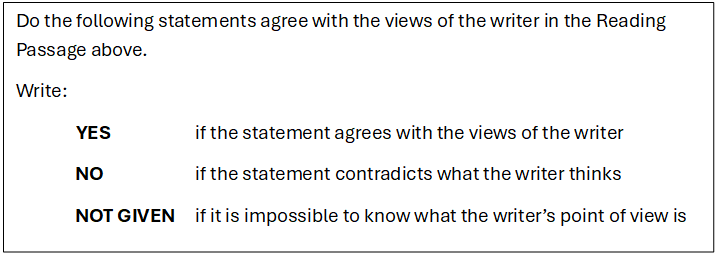Improve your Sentences for IELTS Writing Task 2 by creating more complex sentence structures and reducing your grammar errors. Below are some sentences written by a student. Your task is to spot the mistakes and also to improve the sentences so that they are a higher band score.
Creating Higher Band Score Sentences for IELTS Writing
There are many ways to improve sentences in your IELTS writing. Some people think the only way is to create long sentences – this is not true. To improve sentences you can:
- use clauses
- using linking words to connect ideas
- give more precise information that improves the quality of the sentence
- reduce errors
See the sentences below and the ways I use to improve the sentences to make them higher band score.
Improving Sentences Example 1
Below are three short sentences. You can increase your IELTS writing band score by connecting them and also adding more precise details
Many children are obese. They eat too much junk food. They should do exercises.
Option 1: Connect the sentences:
- Many children are obese because they eat too much junk food and one way to tackle this is to encourage them to do more exercises.
Option 2: Add more valuable information:
- An increasing number of children are struggling with obesity which can have a serious impact on their health. This is mainly because they are eating foods which are high in unhealthy fats and sugars as well as having a sedentary lifestyle lacking in sufficient exercise. To tackle this, children must be given a balanced, controlled diet and encouraged to get exercise every day to burn the calories they consume as well as reduce blood sugar levels.
Improving Sentences Example 2
Facebook is a good way to connect to friends. People can keep up to date with friends. Personal information is not always secure.
Option 1: Connect the Sentences
- Although Facebook allows people to connect to each other and keep up to date with their news, their personal information might be at risk.
Option 2: Add more valuable information
- Admittedly, Facebook provides a fun, interactive way for people to stay connected and remain in each other’s lives no matter the distance. However, by sharing so much personal information on a public, insecure platform, people are opening themselves up to online security problems such as identify theft, fraud and even cyber stalking.
Reduce Sentence Errors to Increase your IELTS Score
The more errors your sentences contain, the lower your score will be. It is better to write two sentences which are controlled in length and with no errors than one long sentence with errors. A long complex sentence with errors will not help your score.
The most common errors are in:
- articles a/the
- plural nouns and countable nouns
- prepositions
- linking words
- clauses
- gerunds (verb+ing = noun)
Spot the errors in the sentences below:
- In my opinion, study history is extremely important in term of learning about culture, and science, medicine development.
- On the one hand, history is a subject that is rarely used in people’s lives. Thus it would be better to focus on science and technology, which is more relevant to the future.
- In other word, they should use the school time effectively, because students are loosing the motivation to study subjects like history that has no importance role in day to day life.
- For instance, most people memorising dates, names and facts when they studying history. This information is not useful for future.
- Furthermore, Valuable information can often be found in history, how science and technology had developed over the years.
- Although history has many information that is not useful in today’s world, studying history can help people learn about their background.
ANSWERS
Click below to see the mistakes and how to improve the sentences:
ANSWERS- In my opinion, study history is extremely important in term of learning about culture, and science, medicine development.
- Answer: In my opinion, studying history is extremely important in terms of learning about culture, the development of science and medicine.
- studying = you need a gerund (a verb that has been converted to a noun using +ing).
- in terms of = this is a linking word that you should learn by heart. It is quite common to use in writing task 1 and writing task 1. See this page for LINKING WORDS LIST
- and = you must have the word and before the last item in a list.
- Improvement = In my opinion, studying history is important because it can help people gain a deeper insight into certain aspects of everyday life such as the evolution of culture, science and even medicine.
- Answer: In my opinion, studying history is extremely important in terms of learning about culture, the development of science and medicine.
- On the one hand, history is subject that is rarely used in people’s lives. Thus it would be better to focus on science and technology, which is more relevant to the future.
- Answer: On the one hand, as history is a subject that is rarely used in people’s lives. Thus, it would be better to focus on science and technology, which are more relevant to the future.
- “subject” is a countable noun and requires an article = a
- Thus, = sure you use a comma after a linking word at the start of a sentence.
- science and technology are two separate subjects so the verb should be plural = are
- Improvement = On the one hand, as history is a subject that is rarely of use in people’s everyday lives, it would be better to focus on subjects that are more relevant in today’s modern world and to our future, such as science and technology.
- Answer: On the one hand, as history is a subject that is rarely used in people’s lives. Thus, it would be better to focus on science and technology, which are more relevant to the future.
- In other word, they should use the school time effectively, because students are loosing the motivation to study subjects like history that has no importance role in day to day life.
- Answer: In other words, school time should be used effectively because students are losing the motivation to study subjects, such as history, that play no important role in day to day life.
- In other words = another example of a mistake with linking words. Linking words are easy to learn and make a huge difference to your final band score for writing task 2. You shouldn’t make any mistakes with this language.
- “the school time” does not require an article (no “the” needed).
- losing = the spelling loosing is a spelling mistake
- such as = you cannot use like as a linking device in writing task 2 because it is too informal. Also, don’t forget the commas
- has no importance role = play no important role
- Improvement = In other words, the time spent in schools should be used more effectively by focusing on subjects that are more relevant in today’s world rather than subjects such as history, which has little meaning for most young people, so that students do not lose motivation to learn.
- For instance, most people memorising dates, names and facts when they studying history. This information is not useful for future.
- Answer: For instance, most people memorise dates, names and facts when they study history which is not considered useful information for their future. (Combine the sentences.)
- most people memorising = most people memorise
- when they studying = when they study
- the future = their future
- Combining the two sentences into one complex sentence is better and it is quite easy to do.
- Improvement = For instance, most people are forced to memorise long lists of dates, names and facts for events that happened centuries ago when studying history, which is not particularly useful information for their future.
- Note: I’ve changed when they study to when studying (using a gerund is better for your band score).
- Furthermore, Valuable information can often be found in history, how science and technology had developed over the years.
- Answer: Furthermore, valuable information can often be found in history relating to how science and technology have developed over the years.
- valuable should not have a capital letter in this sentence
- the two clauses in the sentence should be connected using relating to
- had = have (plural)
- Improvement = Furthermore, there is a lot to gain from the study of history namely valuable information relating to how science and technology have developed over the decades, which can help people spot trends of how they are likely to continue developing in the future.
- Although history has many information that is not useful in today’s world, studying history can help people learn about their background.
- Answer: Although history has a lot of information that is not useful in today’s world, studying it can help people learn about their background.
- many information = a lot of information (information is an uncountable noun)
- studying history – studying it (don’t repeat words)
- Improvement = Although the study of history requires people to learn a lot of information that does not seem to directly relate to their life today, it can help people gain a sense of their own cultural identity, which can bring understanding, tolerance and even unite a country.
I hope you found this lesson useful. If you did, let me know and I’ll post more like this for you. All the best, Liz
.
RECOMMENDED FOR YOU:
Linking Words List for IELTS Essays
ALL MODEL ESSAYS & TIPS FOR IELTS WRITING TASK 2
.






